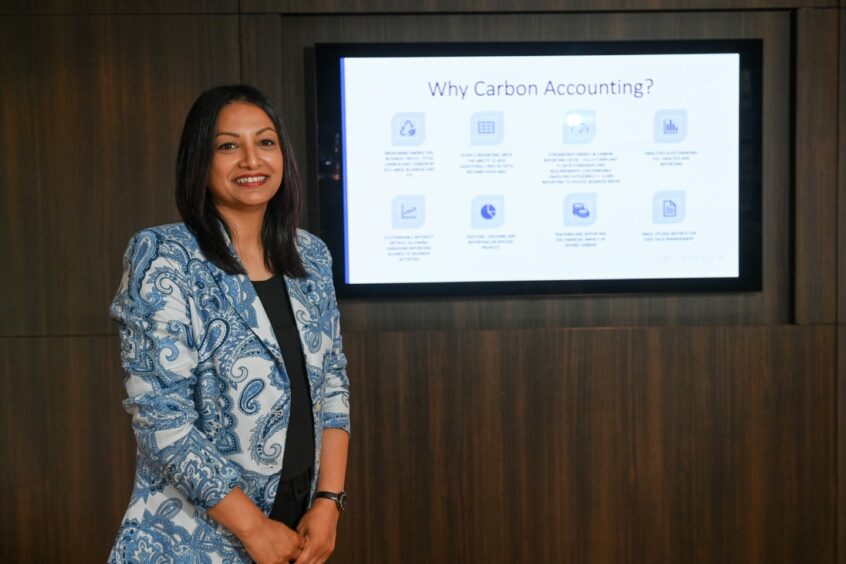Two-thirds of small business owners are worried they don’t have the right skills and knowledge to help tackle the climate crisis.
Many small business leaders also believe it will be expensive and time-consuming to measure, track and reduce carbon emissions, especially since there are lots of other challenges including rising energy prices, inflation, supply chain issues and staffing challenges taking priority.
In contrast, larger businesses are more likely to be better equipped with funds and resources to address net-zero, while sustainability roles are now among the fastest growing in the economy.
“Just over the last six months alone we have seen a huge shift in the need for businesses to start their net-zero journey,” said Beena Sharma, managing director of Imperium Experts.
“This may be due to pressures from employees, clients, customers, investors and partners.
“More importantly, businesses are finding they can no longer remain competitive, particularly when bidding for tenders, more and more of which may not accept a bid without a carbon reduction plan in place or evidence of carbon emissions management.”
Why does your business need to be net-zero?
Sustainable businesses are becoming more attractive to customers and clients as increasingly people want to work with firms that think about the planet as much as profit.
Not only this but large companies are insisting their supply chains provide carbon emissions data and audited reduction plans.
Imperium aims to equip businesses of all sizes to address net-zero challenges by providing workshops, training courses, carbon accounting software and accreditation, with a particular focus on ensuring cost is not a barrier for smaller businesses.
The firm is hosting an event in Aberdeen which will give north-east company leaders an insight into how they can adopt a net-zero strategy and what it means for the future of their businesses, their customers, employees, and their reputation.
What is scope 3?
Greenhouse gas emissions are categorised into three groups or “scopes” by the most widely-used international accounting tool, the Greenhouse Gas (GHG) Protocol.
Scope 1 covers direct emissions from owned or controlled sources.
Scope 2 covers indirect emissions from the generation of purchased electricity, steam, heating and cooling consumed by the reporting company.
Scope 3 includes all other indirect emissions that occur in a company’s value chain.
“The greatest percentage of a company’s emissions are likely to be scope 3, i.e., emissions generated via the value chain,” Ms Sharma said.
“Scope 3 is difficult to measure as the majority is generated by third parties.
“However, using our tools and methodologies, we can support accurate identification of these emissions and targeted reductions.”
Imperium said it regularly speaks to firms that do not know where to start, many of which are unaware of how their business may be impacted negatively should they choose to delay implementing net-zero strategies into their day-to-day functions.
Upcoming legislation is likely to move towards carbon taxation and the rise in costs of carbon offsets.
Many small businesses will struggle to keep up unless they are proactive now.
The Aberdeen event is designed to guide organisations through the transition to net-zero and inform them on how they can efficiently manage, understand and monitor their carbon footprint in line with upcoming legislation.
It is free to attend and takes place on Thursday September 1 at Neospace in Aberdeen.
Businesses must act now
Last November a British Chamber of Commerce survey revealed nine out of 10 firms have not done any assessment on a series of key strategies for managing a sustainable transition to net-zero.
And more recently, in February 2022, UN-backed SME Climate Hub conducted a survey to explore the barriers preventing SMEs from reducing their carbon emissions. It reveals that two-thirds of small business owners are worried they don’t have the right skills and knowledge to tackle the climate crisis.
Large companies are insisting that their supply chains provide carbon emissions data and audited reduction plans.
In 2021 it was announced that UK Government contracts over £5 million would only be available to businesses with a net-zero plan.
Ms Sharma added: “The imperative to act now has never made more business sense and yet take up is low.
“The Aberdeen event is designed to help businesses understand the importance of a net-zero plan, where emissions are in a business and how to measure and report on these.”



Conversation